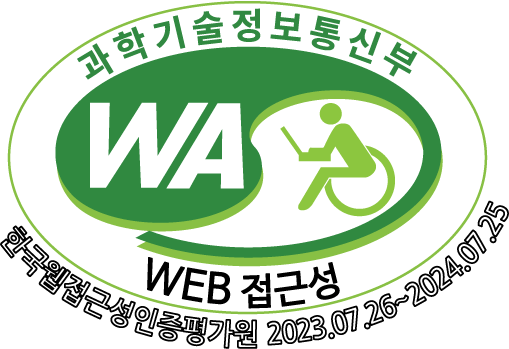관련자료
[PKO] 유엔 평화유지활동구상 주제별(평화구축) 토의(6.11) 발언문(조태열 대사)
- 부서명
- 유엔과
- 작성일
- 2018-06-11
- 조회수
- 1907
At the outset, I would like to thank you for co-facilitating the thematic consultations of peacebuilding of the Action for Peacekeeping initiative. I also wish to commend the leadership of the Secretary-General to further strengthen UN peacekeeping, one of the most important political innovations in our collective efforts to maintain peace and security. Republic of Korea strongly supports the Secretary-General’s efforts to reform the UN peace operations.
Today, I would like to focus on five key elements that could be reflected in the Declaration of Shared Peacekeeping Commitments.
First, prevention and sustaining peace must be mainstreamed throughout the UN system as a whole, including peacekeeping. It is not the responsibility of one office or entity.
We, therefore, call on the Secretariat to ensure that the reforms will result in the UN system engaging in a more coherent and impact-oriented way in the field based on comparative advantages and mandates. But, the reforms should not end at restructuring the Secretariat. It should change the culture so that the UN system can overcome the silos and work in a more coherent and strategic manner to sustain peace.
Second, the Secretariat and Member States need to significantly increase investment in the analysis and planning for a more effective design of missions. The Secretariat, in particular, needs to provide improved analysis so that the Council can fully understand the dynamics on the ground when establishing and adjusting mission mandates.
It should undertake regular joint assessments with the host government on all dimensions of the three pillars to build and sustain peace, in close consultations with the mission, UN Country Team, and other relevant actors including regional and sub-regional organizations.
Third, based on enhanced analysis, a comprehensive political strategy or roadmap should be developed, taking into account the entire peace continuum, from prevention, peacekeeping to peacebuilding and long-term development. The mandate of peacekeeping missions should be designed as part of this broader political strategy that lays out the bigger picture of UN’s engagement to build and sustain peace.
The comprehensive strategy would also serve as the basis for the Secretariat and Member States to decide on a clear division of labor among the mission, UN Country Team and other relevant entities from the outset of the mission until its drawdown. For instance, DPKO has a wealth of expertise in building and sustaining peace, including protection of civilians, rule of law, DDR and SSR, and local conflict dynamics, while DPA, PBSO and UNDP also have been assisting Member States with prevention, sustaining peace, and peacebuilding activities. The Peacebuilding Commission is well placed to provide qualitative advice to the Council in following up on the implementation of the peacebuilding component of the comprehensive strategy.
In this regard, it would be particularly important for the Council to determine the extent of peacebuilding activities that should be carried out by the peacekeeping mission, taking into consideration the calls for less ambitious and more manageable mandates. Member States should also deliberate on ways to better secure programmatic funding for peacebuilding activities, whether implemented by the mission, UN Country Team or other relevant partners, including scaled-up support for the Peacebuilding Fund.
Fourth, the comprehensive strategy towards sustaining peace should reflect on the strategic partnerships with relevant stakeholders outside the UN, including regional and sub-regional organizations, international financial institutions, civil society and the private sector. Given the complex, multifaceted nature of today’s challenges, and yet the insufficient funding and capacity of the UN, sustainable peace and development simply cannot be achieved by the UN system alone.
In building partnerships with relevant stakeholders, the PBC could play an increasingly important role by using its unique convening power to mobilize relevant actors. And, given that the current development system reform will lead to a more empowered and independent Resident Coordinator, we believe that the PBC can work more strategically with the multi-hatted Deputy Special Representatives of the Secretary-General by providing the necessary political leverage and support from New York to help him or her mobilize the necessary resources and coordinate the relevant stakeholders on the ground to meet the mandate of the peacekeeping mission.
Fifth, it is important to respect the national ownership and priorities of the host government in building and sustaining peace at all stages of the mission, from planning, to implementation and transition. At the same time, missions should work closely with the host government and other relevant entities, including the PBC, to strengthen the capacity of state institutions with a long-term vision.
In this regard, it should be noted that the mandates of peacekeeping operations often overlook the social mechanisms or informal institutions that are readily available to serve as a basis for sustainable peace, such as the role of elders, religious and traditional leaders as well as traditional justice systems. Efforts to sustain peace should build on these existing institutions and the resilience as well as reconciliation processes of the local communities.
Korea stands ready and committed to assist the Secretary General in pursuing the Action for Peacekeeping initiative.
We hope that some of these ideas can be duly reflected in the Declaration of Shared Peacekeeping Commitments. Thank you very much.
- 메뉴담당부서
- 유엔과
- 전화
- 02-2100-7243


